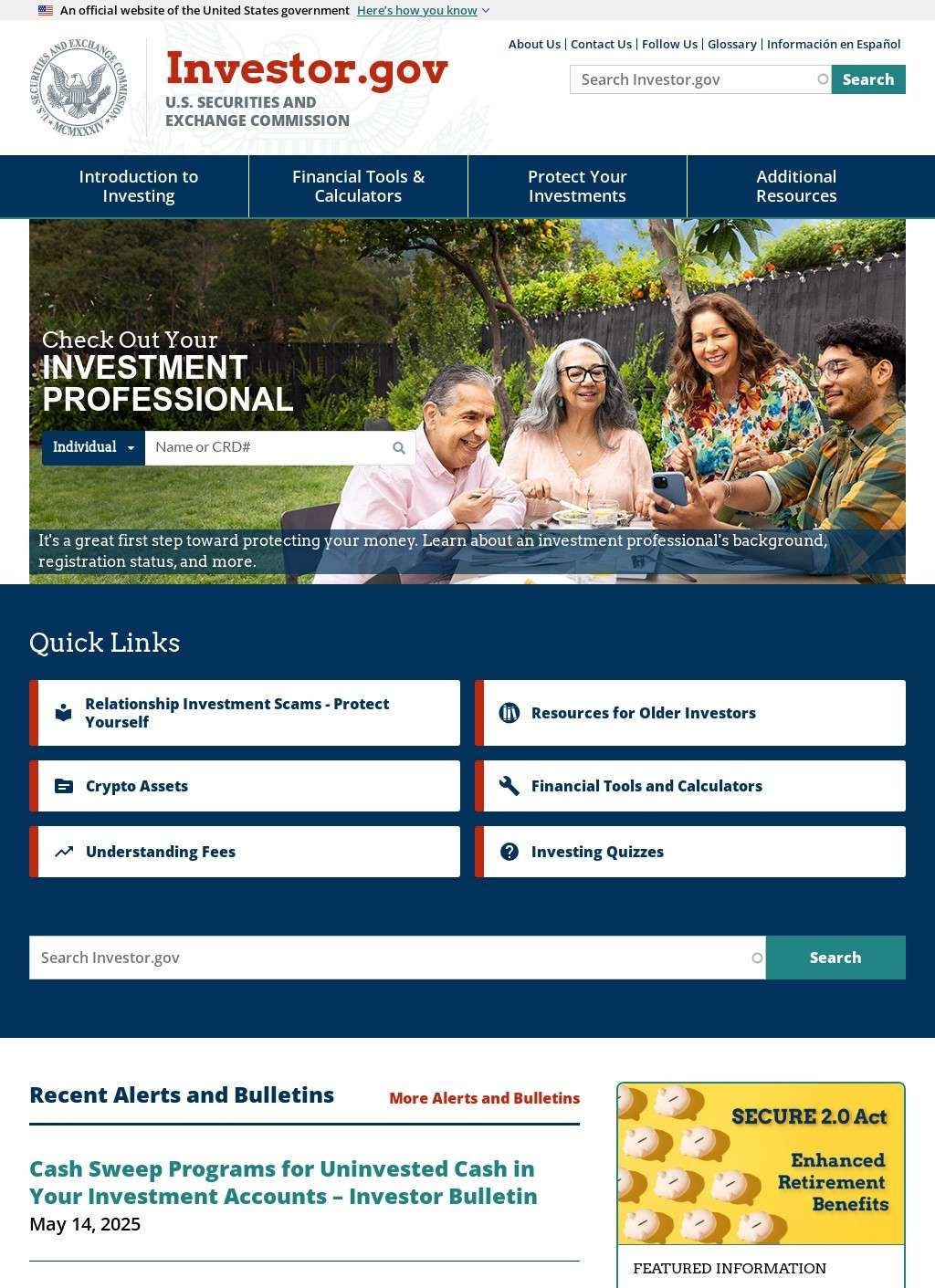The Securities and Exchange Commission's investor education portal stands as the first line of defense for Americans navigating the complex and often treacherous waters of cryptocurrency investment. Through its comprehensive Office of Investor Education and Advocacy, the SEC provides critical resources that help both novice and experienced investors understand the unique risks and regulatory landscape surrounding digital assets. Unlike traditional investment guidance, the SEC's cryptocurrency resources address the distinctive challenges posed by this emerging asset class - from understanding whether a particular token qualifies as a security to recognizing the warning signs of increasingly sophisticated crypto scams.
The SEC's approach to cryptocurrency investor education reflects a careful balance between acknowledging innovation and emphasizing protection. The commission regularly publishes investor alerts specifically targeting cryptocurrency-related risks, warning about everything from fraudulent initial coin offerings to celebrity-endorsed tokens that violate securities laws. These alerts don't just identify problems; they provide practical guidance on how investors can protect themselves. The SEC explains red flags to watch for, questions to ask before investing, and steps to take if something goes wrong. This proactive educational approach helps investors make informed decisions before problems arise.
Within the cryptocurrency investment landscape, the SEC's educational resources address a fundamental challenge: determining which digital assets fall under securities regulations. The commission provides detailed explanations of the Howey Test and how it applies to various crypto offerings. Through case studies and enforcement examples, investors learn why some tokens are considered securities requiring registration while others like Bitcoin and Ethereum are generally treated as commodities. This distinction proves crucial for investors, as securities come with specific protections and disclosure requirements that don't apply to other digital assets.
The investor complaint system operated by the SEC serves dual purposes in the cryptocurrency space. For individual investors, it provides a channel to report potential fraud or seek assistance with investment-related problems. The commission handles tens of thousands of complaints annually, with cryptocurrency-related issues representing a rapidly growing category. For the broader investment community, these complaints feed into the SEC's market surveillance efforts, helping identify emerging threats and patterns of abuse. The data collected through complaints often leads to enforcement actions that protect future investors from similar schemes.
Educational materials from the SEC specifically address the unique vulnerabilities cryptocurrency investors face. Unlike traditional securities held by regulated brokers, crypto assets often lack familiar protections like SIPC insurance or mandatory custody requirements. The SEC's resources explain these gaps clearly, helping investors understand that cryptocurrency exchanges operate under different rules than traditional brokerages. Materials cover practical topics like wallet security, the risks of lending platforms, and why promises of guaranteed returns in crypto should always raise suspicions.
The commission's investor education efforts extend beyond simple warnings to provide frameworks for evaluating cryptocurrency investments. Resources explain how to research token issuers, what questions to ask about a project's technology and business model, and how to verify claims made in whitepapers. The SEC emphasizes the importance of understanding not just the technology but also the economics behind cryptocurrency projects. Investors learn to scrutinize tokenomics, distribution models, and governance structures that could affect their investment's value.
Collaboration with other regulatory bodies enhances the SEC's cryptocurrency investor education. Joint statements with FINRA clarify how traditional broker-dealer rules apply to crypto assets. Coordination with the CFTC helps investors understand which agency oversees different types of digital assets. International cooperation through IOSCO ensures that investor protection principles apply consistently across borders - crucial in a global cryptocurrency market. These collaborative efforts provide investors with a more complete picture of the regulatory landscape.
The SEC's enforcement actions serve an educational function beyond their punitive purpose. By publicizing cases against fraudulent crypto schemes, unregistered securities offerings, and market manipulation, the commission creates a library of cautionary tales. Investors can study these cases to understand how scams operate and why certain activities violate securities laws. The commission's litigation releases and administrative proceedings provide detailed narratives that help investors recognize similar schemes before becoming victims themselves.
Accessibility remains a priority in the SEC's investor education initiatives. Materials are available in multiple languages, recognizing that cryptocurrency scams often target specific ethnic communities. The commission maintains a toll-free investor assistance line where people can speak directly with staff about concerns. Online resources use clear, jargon-free language to explain complex concepts. Video content and infographics make information digestible for visual learners. This multi-channel approach ensures that protection reaches investors regardless of their preferred learning style.
The rapidly evolving nature of cryptocurrency markets requires constant updates to educational materials. The SEC regularly revises its guidance to address new types of tokens, emerging DeFi protocols, and novel investment structures. Staff monitor technological developments and market trends to ensure resources remain relevant. When major events occur - like exchange failures or new types of scams - the commission quickly publishes targeted alerts. This responsive approach helps investors stay informed about current risks rather than yesterday's threats.
Looking ahead, the SEC's investor education mission faces new challenges as cryptocurrency becomes more mainstream. The commission must help investors navigate increasingly complex products like tokenized securities, decentralized exchanges, and cross-chain protocols. Educational efforts must address not just fraud but also market structure issues, systemic risks, and the intersection of traditional finance with digital assets. Through continued commitment to clear, accessible, and timely education, the SEC helps ensure that investors can participate in cryptocurrency markets with their eyes wide open to both opportunities and risks.
